Great news! Our latest resources to accompany the Pee Power edition of Whizz Pop Bang are now available to download.
Not yet a subscriber to our downloadable teaching resources? Start a subscription today!
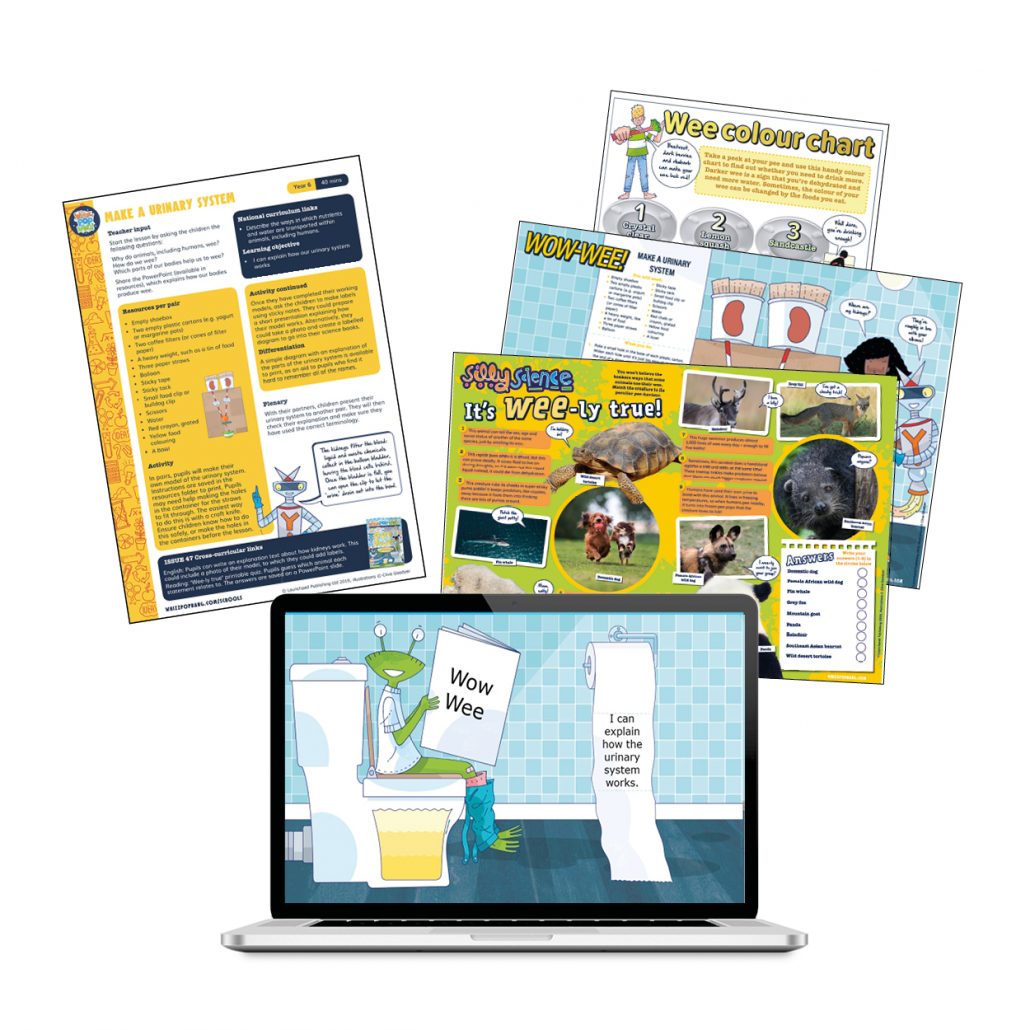
Make a Urinary System
Explore how our bodies get rid of chemicals we don’t need.
Topic: Animals including Humans and Body Systems and Cells
Year Groups: 6 and P7
This lesson pack teaches children how our urinary systems work. Your body has a whole wee-producing department called the urinary system, including your kidneys, bladder and the tubes that connect them and carry the wee out of your body.
This lesson pack includes:
- A lesson plan, complete with an explanation of how our kidneys work
- Differentiated printable instructions to make a urinary system
- A PowerPoint presentation that explains how the urinary system and kidneys work
- A printable wee colour chart
- A ‘Wee-ly true’ quiz
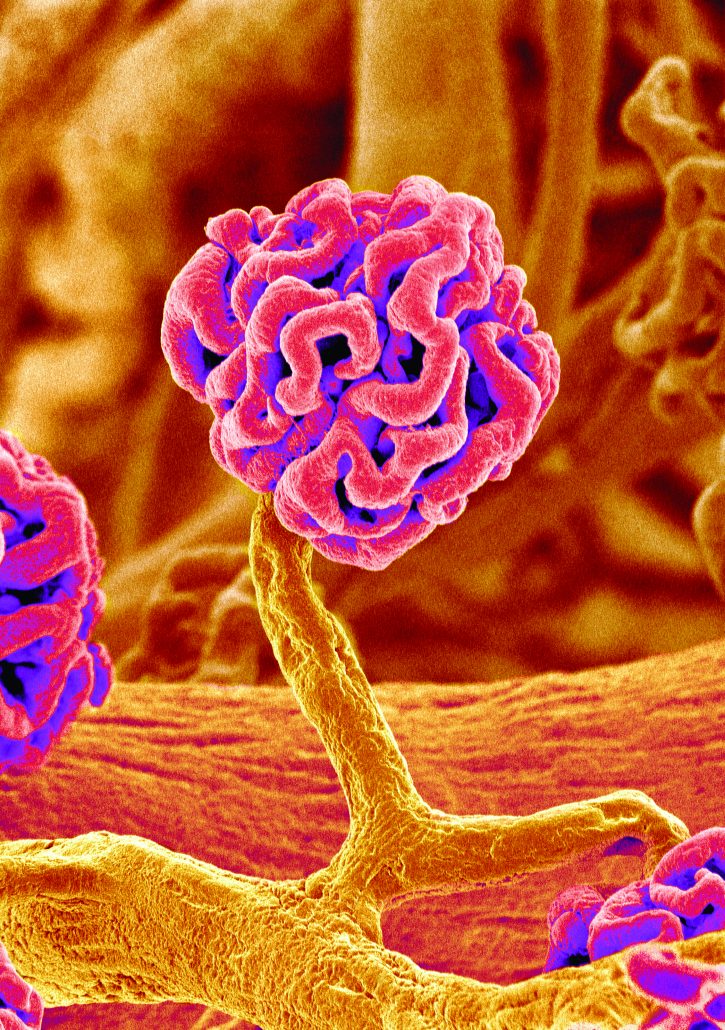
Kidney glomerulus
Topic: Animals including Humans and Body Systems and Cells
Year Groups: 2 to 6 and P3 to P7
A short discussion topic. This impressive image shows a close-up view of a kidney glomerulus. Each kidney has around a million glomeruli that filter toxic waste from the blood.
This ten-minute activity, linking to speaking and listening, is ideal for use at the beginning of the day or during transition times, such as after lunch. Pupils will be challenged to guess what the image is by answering the questions shown on the first slide of the PowerPoint. Once pupils have finished, click through to the next slide to reveal the answers.
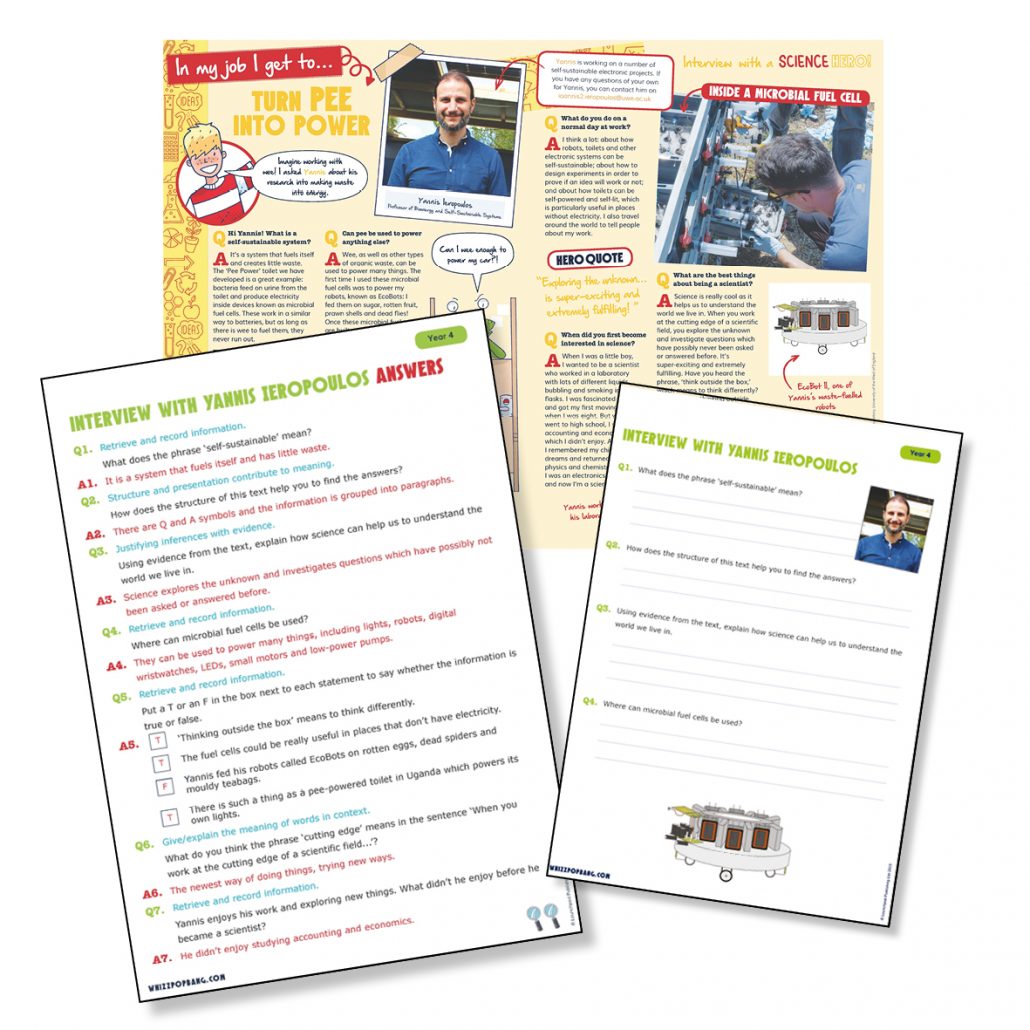
Interview with a bioengineer
Interview with a scientist who turns waste into energy.
Topic: Animals including Humans and Body Systems and Cells
Year Groups: 4 and P5
This interview text delves into what a bioengineer does. Yannis Ieropoulos has designed and created the ‘Pee Power’ toilet, a system that fuels itself and creates little waste. He spends most of his days thinking a lot about toilets, robots and other electronic systems that could be self-sustainable.
This downloadable reading pack includes:
- An A3 reading spread for you to print
- Differentiated reading comprehension question sheets
- Answer sheets
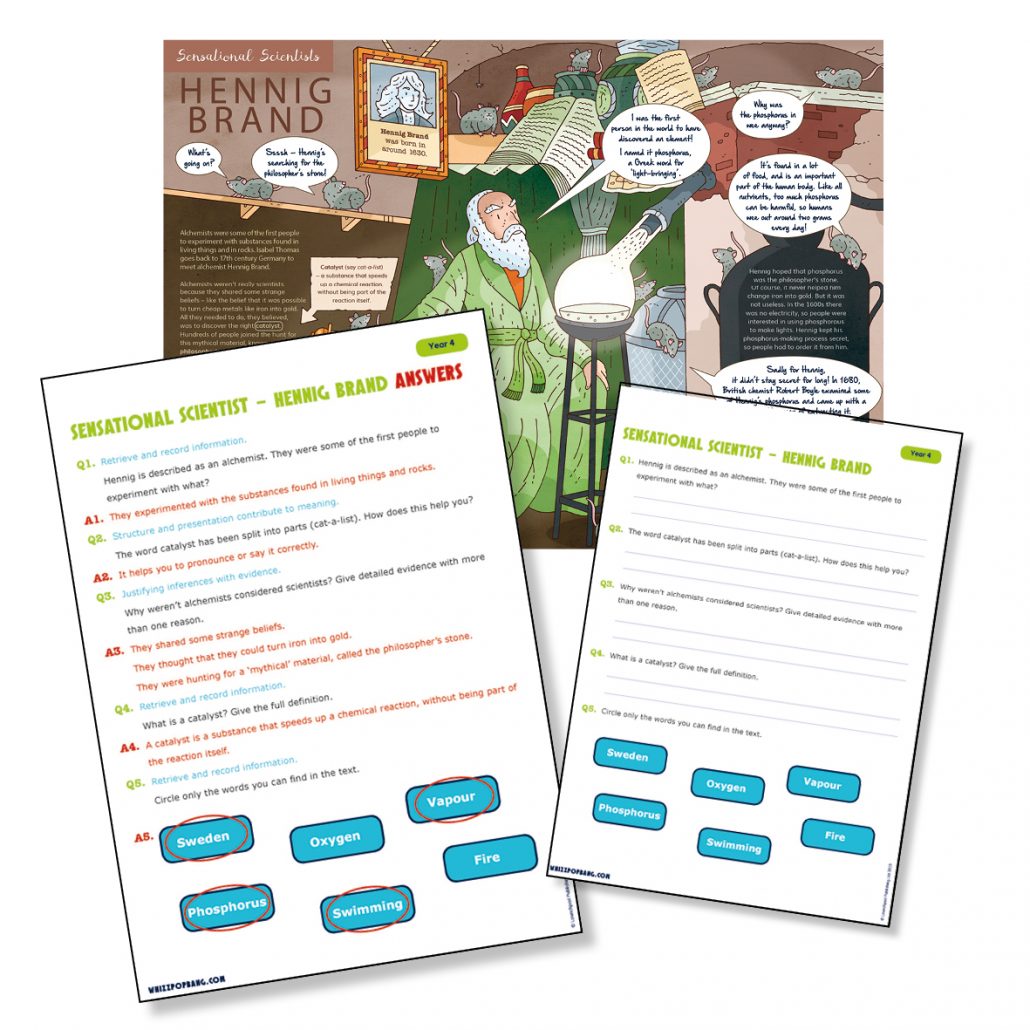
Historical Scientist Hennig Brand
Hennig Brand was an alchemist.
Topic: Animals including Humans and Body Systems and Cells
Year Groups: 4 and P5
This biography text describes the life of historical scientist Hennig Brand. He was an alchemist who lived in Germany in the 17th century and was the first to discover an element. Hennig found phosphorus whilst experimenting with wee!
This downloadable reading pack includes:
- An A3 reading spread for you to print
- Differentiated reading comprehension question sheets
- Answer sheets
Latest science news across the world
This month we look at:
- Black hole seen for the first time
- Measles crisis
- Kids sue American government over climate change
- Wee-loving goats airlifted from national park
- ‘Mission Jurassic’ dino dig begins
- This A3 downloadable reading spread is available for you to print.
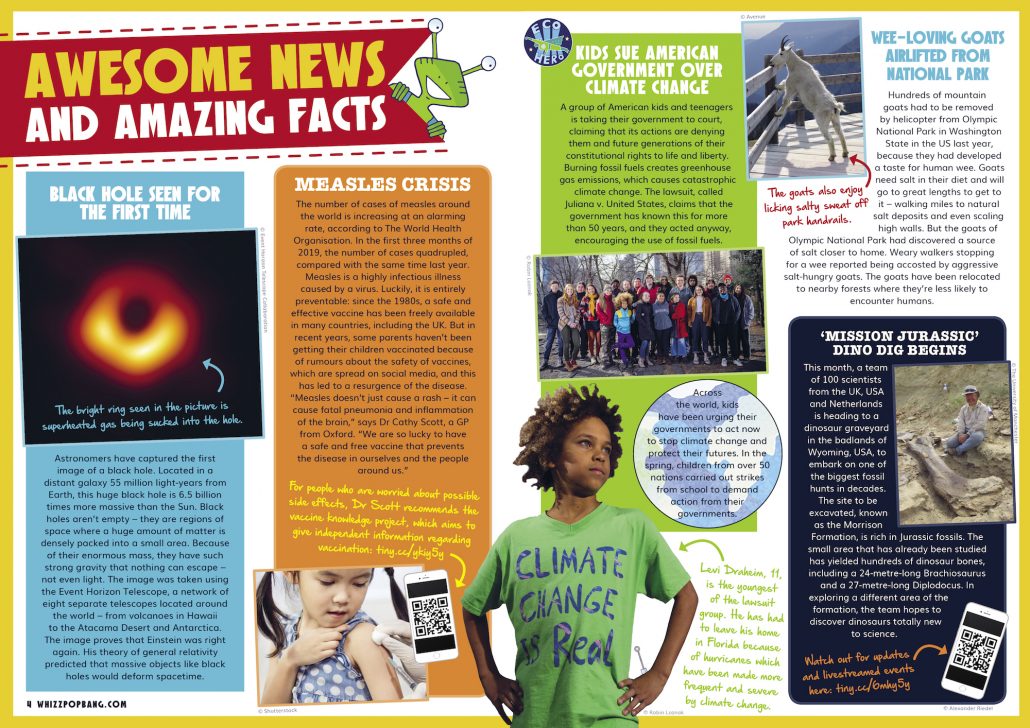
Issue 47 – Pee Power
Find out what wee is, why it’s so important and how your body makes it!
Discover some of the wee-rder wonders of urine – did you know that the Romans used wee for cleaning their teeth? Which animal can pee whilst doing a handstand?! Have a go at brewing up some fake wee, create a model urinary tract system and put up the wee colour chart in the classroom.
